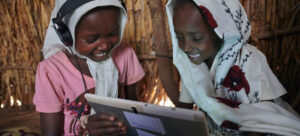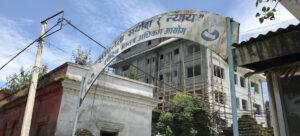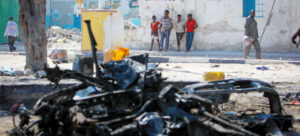The world of work has been upended by COVID-19, and the effects are likely to be long-lasting. Before the pandemic, there were some 260 million home-based workers (not including domestic or care workers). The International Labour Organisation (ILO) estimates that figure could have doubled, with as many as one in three workers remote working in North America and Europe, and one in six in sub-Saharan Africa.
The rollout of vaccines, mainly in the developed world, has increased the possibilities of a return to the workplace, but many companies and workers have signalled a wish to retain a degree of home working, after seeing some of the benefits. For employers, these include minimising the risk of contagion and potentially spending less on expensive office space whilst staff no longer have to spend commuting to and from the workplace.
‘If you’re losing your mind, I’m right there with you’
However, whilst some are enjoying baking bread or taking a stroll during a conference call, and using the commuting time to indulge in new pursuits, others have been craving a return to a more structured work-life routine.
“I tell myself daily that I am grateful to have a job with understanding supervisors and colleagues. But all of it is hard. If you’re also a working mum losing her mind daily, know that I’m right there with you,” says Paulina, a New York-based teleworker.
“I have chaired meetings with a laptop and headphones on one side of a tiny, New York City kitchen while cooking lunch and having a screaming toddler wrapped around my ankles. While all of this is cute once or maybe twice, regular screams of children in the background can only be tolerated for so long. I should know, because I passed that line sometime in July.”
Stories such as this explain why a recent study by the International Labour Organisation (ILO) found that 41 per cent of people who worked from home considered themselves highly stressed, compared to 25 per cent of those who worked on-site.
“The most effective way to eliminate the risk of contagion in a work context is, for those who can do it, teleworking, says Joaquim Nunes, head of occupational health and safety at the ILO, “But we still need to pay attention to the physical and mental well-being of workers”.
As teleworking is likely to remain an important factor in many people’s jobs, Mr. Nunes says that work-related policies will have to be updated to reflect the new reality.
“There’s a good chance that the rise of teleworking during the COVID-19 pandemic will permanently change how we live and work. Many governments have realised this, and are taking a fresh look at the rights of employees working from home. For example, companies should ensure that workers do not feel isolated, whilst giving them the right to disconnect, rather than being online 24 hours a day”.
In Chile, a law adopted early in March 2020 goes some way to addressing some of these concerns. The legislation recognizes the right of remote workers to disconnect for at least 12 continuous hours in a 24-hour period. In addition, employers cannot require workers to respond to communications on rest days or holidays.
A healthy home?
Beyond the question of comfort and mental health, is one of physical safety. It is often said that most accidents happen at home, so, if this is where much of the working week is spent, should employers be responsible for making sure apartments aren’t death traps?
“For now, there are no easy answers when it comes to ensuring a suitable home office environment”, says Mr. Nunes. “However, we can say that the same principles that apply to other workplaces apply to teleworkers, in that employers have a general duty of care, as reasonably practicable. Employers can’t control the workplace when staff are working from home, but they can provide ergonomic equipment to workers, such as suitable chairs, and help them to assess their own risks and to learn about how to maintain healthy lifestyles.”
Teleworking is also challenging for enforcement agencies, as usually inspectors do not have free access to the private spaces. One solution to ensure compliance with legislation could be virtual inspections, which are already taking place in Nordic countries on a voluntary basis. “These involve labour inspectors video calling a worker at home, and being shown their work chair, desk, and lighting setup”, explains Mr. Nunes. “These inspections can serve as a way to monitor the home workplace and provide advice, but also raise understandable privacy concerns”.
Frontline fears
Whilst the new teleworkers and their employers grappled with their new reality, a large part of the global workforce had no choice but to go to a physical place of work. The difficulties faced by health care workers were widely reported, but employees in several other industries had to brave the trip to the workplace – sometimes on crowded trains and buses – and, often, interact with other people, at considerable risk to their health.
In the US, these fears led to collective action by workers at Whole Foods, a grocery subsidiary of Amazon. On March 31, 2020, in response to seeing their colleagues testing positive with COVID-19, workers decided to call in sick, and demand sick leave, free coronavirus testing and hazard pay. This was followed in April by work stoppages at some of America’s biggest companies, including Walmart, Target and FedEx.
Whilst early advice on protection and prevention focused on measures such as hand washing, the wearing of masks and gloves, and physical distancing, the ILO quickly realised that more needed to be done to address work-related issues.
“In the workplace, you have to think about more than just the individual worker: the whole environment needs to be protected’, explains Mr. Nunes. “One example that many of us will have come across is in shops and supermarkets, where it is now common to see PVC separators between cashiers and customers. Work surfaces are also being cleaned much more frequently, but this raises other concerns that need to be addressed, such as the potential for skin complaints or respiratory problems caused by the chemicals in cleaning products.”
Whilst areas such as healthcare and retail have been grappling with these issues for several months, other parts of the economy could soon be opening up. In several countries, plans are being made to allow gatherings of large numbers of people to take place, in venues such as concert halls and cinemas, and, heading into summer in the northern hemisphere, the range of permitted tourist activities looks set to expand.
However, for this to take place, and for economies to safely open, governments and employers, in collaboration with workers, will need to make sure that workers in these, and all other industries, are safe at their workplaces, and confident they will not be exposed to unnecessary risks, particularly those related to COVID-19.















